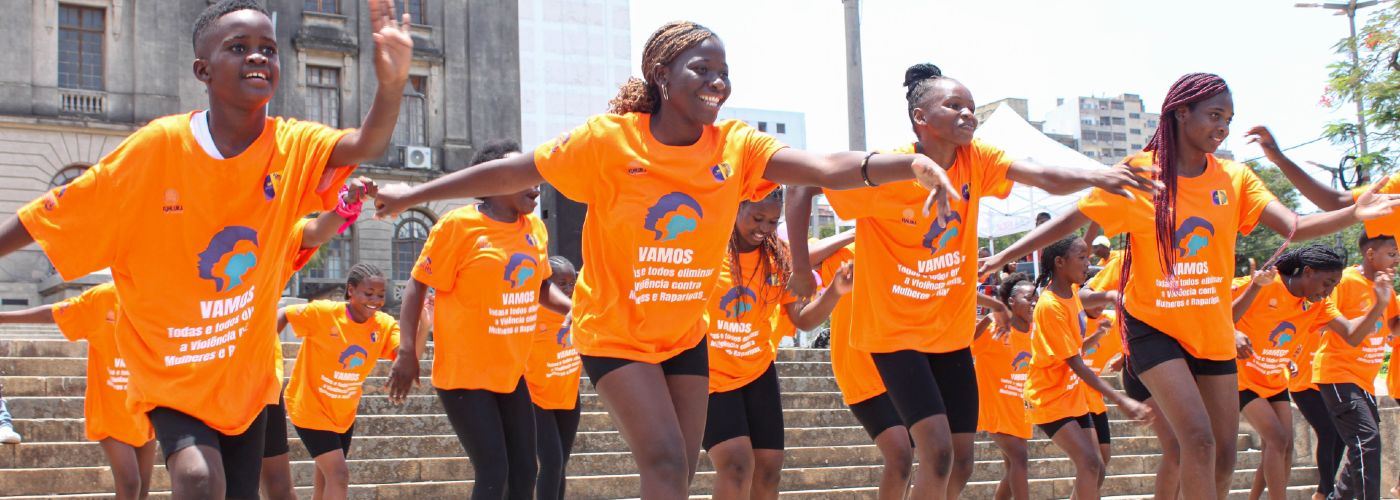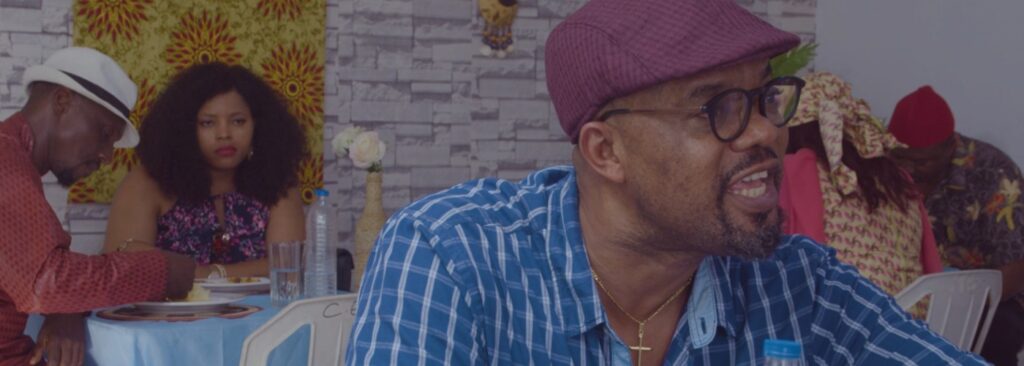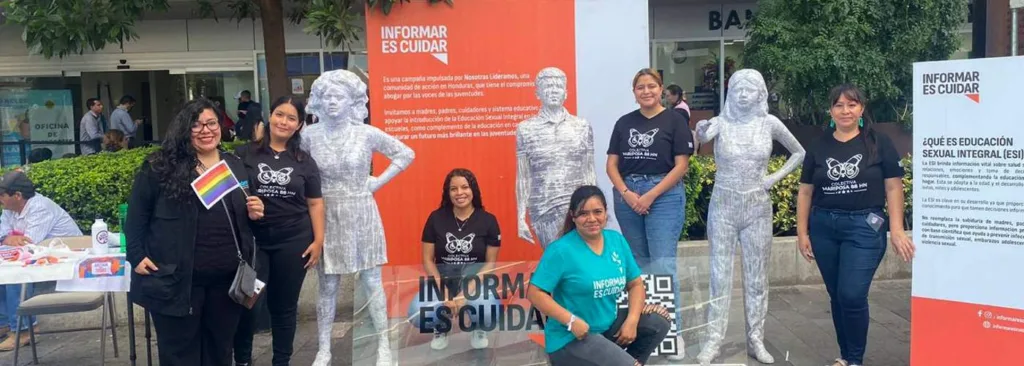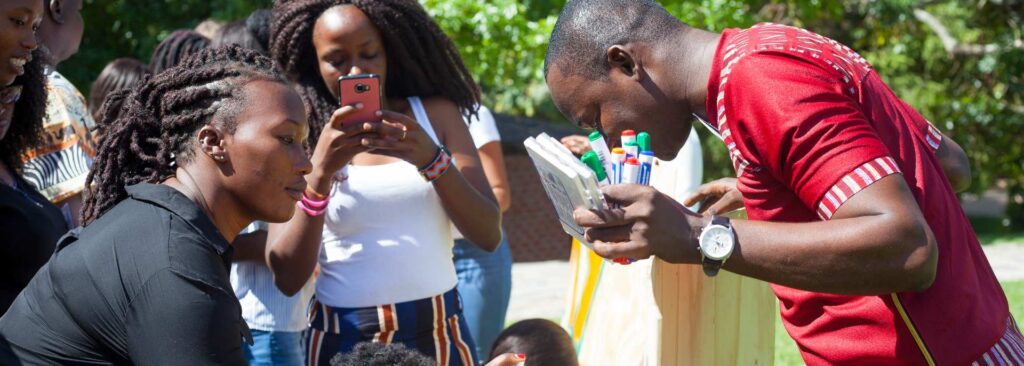As a passionate advocate and a mentor to young women and girls, Angelina Alexandre Nuvunga is a leading voice in the Feminist 30 under 30 campaign. Angelina’s work exemplifies the power of young women to shape their futures. “The future is in our hands, and we must shape it with courage and conviction,” she says. During the 69th session of the UN Commission on the Status of Women (CSW) in New York, Angelina spoke about her dreams and challenges in strengthening the position of girls in Mozambique.
Empowered through dance and debate
Angelina is the program coordinator for our We Lead program at partner organization ASCHA (Associação de Solidariedade e Capacitação para a Humanidade e a Autonomia). She was only seven when she started participating in their activities. The organization teaches traditional and modern dance to the community, while creating spaces for dialogue. “The sound of the music attracted me. And when debates happened, I wanted to participate as well. I always admired the people who gave lectures.” In 2017, Angelina decided to take on the role of mentor herself. “Through the mentorship programs, I began to identify as a citizen with rights and started learning how to position myself as a woman and as a person, having learned about my rights as a woman and a girl. And that’s when I started to identify as an activist.”
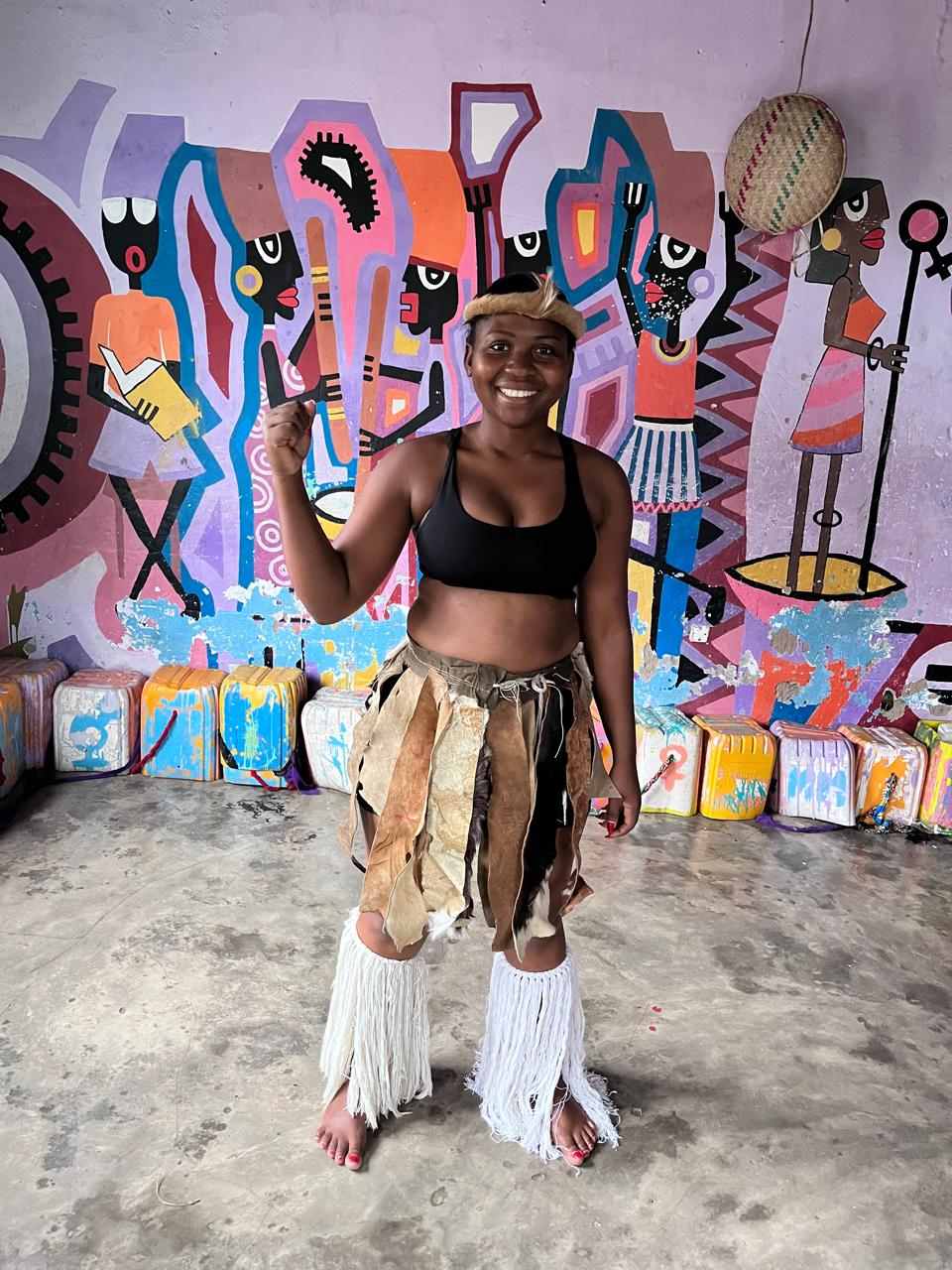
Challenges in sexual and reproductive health
Young women in Mozambique face significant barriers to sexual and reproductive health (SRH) services. Many lack access to adequate healthcare, and insufficient sex education leaves them unprepared to make informed decisions. “Without education and proper health services, young women are left in the dark about their own bodies,” says Angelina. Marginalized groups, such as young women living with HIV and LGBTIQ+ youth, face even greater challenges, experiencing both gender-based violence and discrimination. “They face double violence – one due to their gender, another due to their sexual identity,” she explains.
The costs of mentorship
Mentorship can be a rewarding, yet painful job in Angelina’s experience. “Because mentorship is about transformation and listening, especially regarding people’s daily lives and issues related to gender-based violence and all types of violence. In this process, we try to help the girls regain their identity and continue to have hope to dream again. Many of the girls we help seemed to have lost the will to dream and to keep living, with little to no perspective for professional achievement due to the way they viewed themselves after trauma.”
Hope for the future
Angelina finds hope in seeing the transformative impact of ASCHA’s work. “When I hear women share their stories of growth, I know we’re making a difference,” she says proudly. Additionally, the political recognition of their demands, including the First Lady of Mozambique’s commitment to addressing these issues, strengthens her optimism. “Change is possible, and we are already seeing it,” Angelina says.
Angelina joined the We Lead program at the CSW in New York, where she spoke at the Hivos Gallery event centered on the question: What Brings You Hope? “For me, participating in the CSW is a dream come true. By sharing our experiences, we represent other women who are not here. Because besides living and realizing a dream, I also know I will serve as an inspiration to the girls in my community, those who will come after me.” She concludes, “Together, we can change the world.”
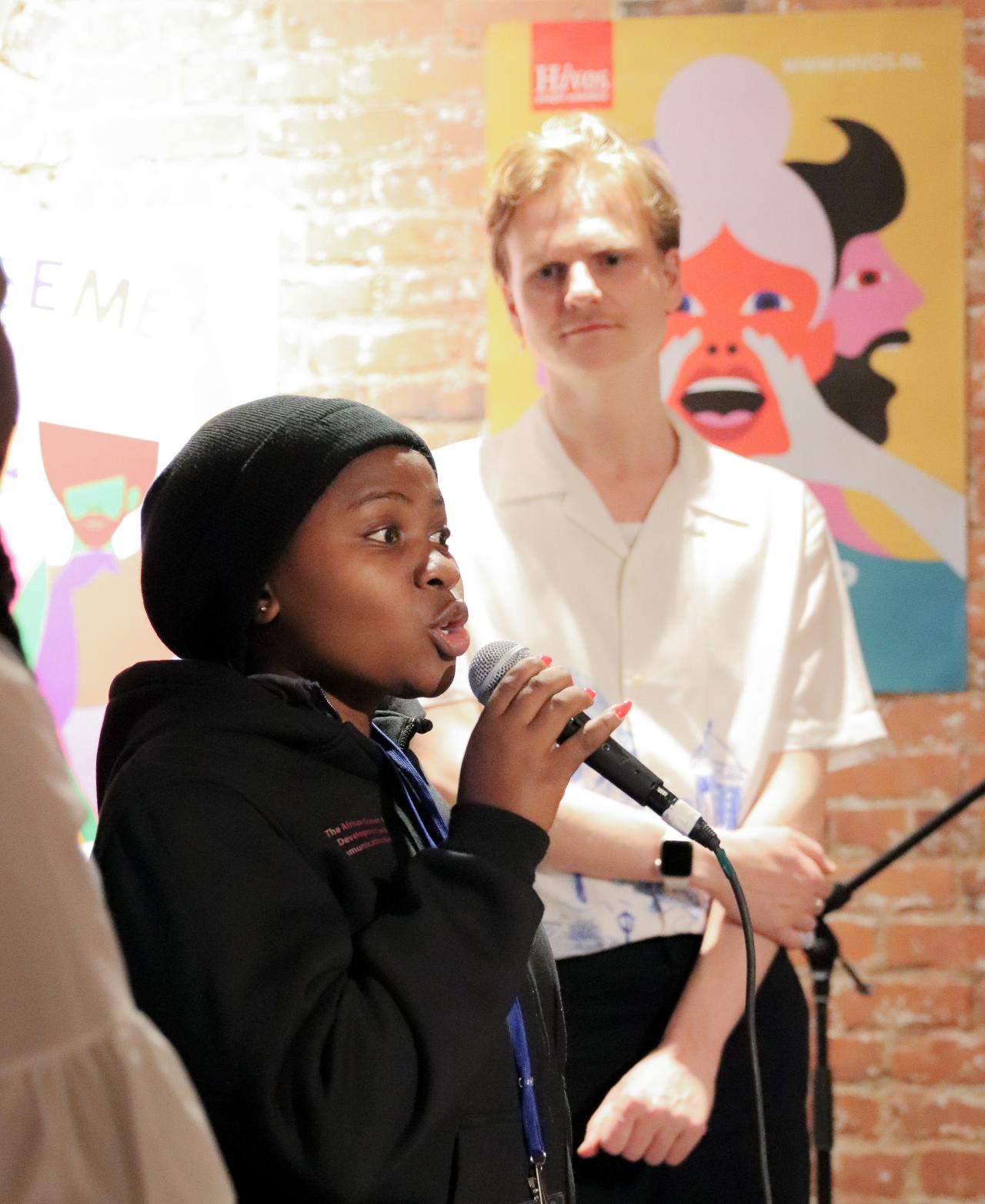
The Feminist 30 under 30 campaign
This year, 2025, is not only the 30th anniversary of Beijing, but it also marks the final year of our We Lead program. We Lead is a five-year program that builds on SRHR movements in nine countries in Central America, the MENA region and across the African continent. The Feminist 30 under 30 campaign introduces the young women who have made this program a success. They represent different walks of life and regions, while sharing a collective goal of strengthening the rights of young women and girls in all their diversity worldwide.

